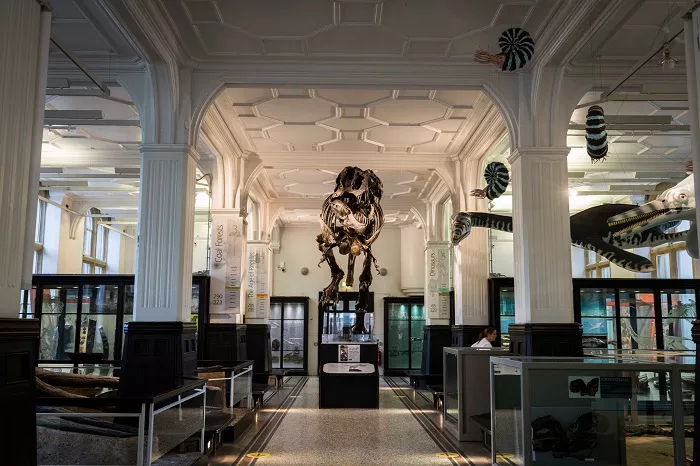The Manchester Museum has been awarded the prestigious title of European Museum of the Year, becoming the first university museum and the first UK institution since London’s Design Museum in 2018 to receive the honor.
Judges praised the 138-year-old museum for its commitment to community engagement and its unflinching examination of its historical legacy. The accolade, considered one of the most significant in the museum world, recognizes innovation and excellence in the field.
The announcement was made in Białystok, Poland, where Manchester Museum emerged as the winner from a shortlist of 42 candidates across the continent. Director Esme Ward accepted the award, expressing surprise and joy at the recognition. “We genuinely didn’t think the main award was ours,” said Ward, who attended the ceremony with two colleagues.
Originally hoping to secure the “Belonging and Inclusion” award, the team was reportedly unprepared for the top prize. “It’s not often I’m lost for words, but we were gobsmacked and it was amazing,” said Ward.
Following a £15 million renovation, the museum reopened in 2023 with major new features including a South Asia Gallery co-curated with 30 individuals from Manchester’s South Asian diaspora. The museum also houses Pinc College, a creative learning institution for neurodivergent students, and hosts an environmental action and social justice hub on its top floor.
In addition to its cultural initiatives, the museum plays a key role in global conservation efforts. It is the only institution outside Panama to house the endangered variable harlequin toad, maintaining a vital breeding population.
Ward emphasized the museum’s mission to confront its colonial roots while fostering inclusive storytelling. “Manchester Museum was born of incredible civic spirit, but it was also born of empire and of racism, and we have to grapple with the legacy of that,” she said. In 2023, the museum returned 174 cultural artifacts to the Anindilyakwa people of Indigenous Australia, marking a significant step in cultural repatriation.
The museum’s evolving narrative aims to deepen public understanding and empathy by broadening the range of stories it presents. “We want to provide multiple perspectives to equip people to navigate this world, to understand it, to build empathy for other people and the natural world,” said Ward.
Though the award includes no financial prize, it comes with a small sculpture by artist Henry Moore and significant prestige that may enhance future funding opportunities.
Celebrations are planned at the museum to mark the achievement, with Ward confirming: “Tomorrow we’re going to have as many people here as humanly possible to unveil the award — and then we’ll plan a party.”


